.png)
.png)
The Biomedical Engineering Department at Vidyalankar was started in the year 2006 with a view to develop skilled health care engineering professionals by nurturing them in a scholarly environment. The Department currently offers four years’ full-time degree program, B. Tech. in Biomedical Engineering and is having intake capacity of 60. Department also offers Honours degrees in AI in Healthcare; Medical IOT and Medical Imaging Technologies. Department is accredited by the National Board of Accreditation till June 2022(Applied now for cycle 2 of Accreditation). The Department is having collaboration with the leading healthcare industry in the world, GE Healthcare, USA, and formed a Health Care Institute (HCI) named GE Healthcare-VIT Centre for Academic Excellence. The HCI primarily focuses on providing education and training to students on the latest technology medical equipment and to enhance their existing technical skillsets including leadership skills. The Department also has signed a MoU with Capgemini Engineering fostering Collaboration to promote Industrial & Academic interaction with an objective of improving Internships and Placements.
Highly competent and dedicated faculty is our strength! This is supported by well-equipped laboratories. Our faculties are expert in various domains in the Biomedical Engineering such as, Biomedical instrumentation, Medical imaging, Digital Image processing, Nanotechnology etc., and are also involved in setting of Biomedical Engineering, syllabus of Mumbai University. Some of them are nominated as experts to government organizations like Municipal corporation of Mumbai, State board of technical education, Department of Science and Technology. Our faculties have significant contribution in Biomedical research and had published their work in reputed national and international Journals. Some faculties are guiding post graduate and doctoral students and evaluating their work as examiners.
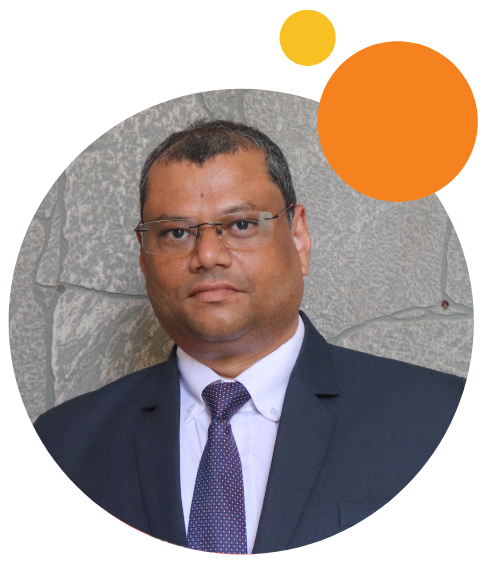
The Department of Biomedical Engineering established in 2006 with a capacity of 60 seats for undergraduate program. The Biomedical Engineering Department places a strong emphasis on the idea of "Student First" and makes every effort to ensure that all students are fully formed into competent biomedical engineers. This is being done by symbiotic relationship with all the stakeholders and exchange of ideas. This results in high-quality course by diverse backgrounds of faculties, on-site practical training, cutting-edge laboratories, and Centre of Academic Excellence Centre of Academic Excellence. The collaborative research projects with research institutes of repute like IIT Bombay, TISS, BARC, Tata Memorial Hospital and many other. We invite experts from the various domains, such as AI, ML, IoT, patient safety, data privacy, biomedical regulations, waste management, and industry experts to demonstrate biomedical equipment, considering the multidisciplinary nature of the field and recent market demands. Campus Credentials, Aspiring Minds, and Smartwayz all assist us in preparing students for placement. The best universities in the world, including John Hopkins, Duke, Michigan Tech, and Rice USA, choose our students for advanced study in biomedical engineering.
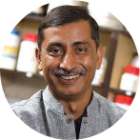
Indian Biophysicist, TIFR Mumbai

Manager - Intellectual Property, Johnson & Johnson

Director, Rescare Medisystems

National Sales Manager, Stryker Pvt Ltd
Publications are regarded as an asset that enables authors to gain recognition and acknowledgement as experts in a particular field at national and international levels. Student and faculties of Biomedical Engineering, work on collaborative projects and come out with new concepts and present/publish their work in national and international conferences / journals like Springer, IEEE, IJRTE, ComPE indexed and peer reviewd UGC Approved Journals. Some of their work published in reputed journals is mentioned below.
• Sushma N. Bhat, Ghanshyam D. Jindal1, Uttam R. Bagal1, Gajanan D. Nagare, “Development of peak detection algorithm using window variance for physiological variability monitoring”, 2nd International Conference on Smart Technologies and Systems for Next Generation Computing. (ICSTSN 2023), IEEE Madras Section, Gangarampalayam, Villupuram, Tamil Nadu, 21-22 April 2023.
• R. Bhurke, A. Khan, D. Chamaria, S. Mali, G. Nagare, "Systematic Analysis of Increase in Health Deterioration Due to Lifestyle Changes," 2023 DST Sponsored Second International Conference on Signal Processing and Communication Systems (ICSPC), M. Kumarasamy College of Engineering, Karur, Tamil Nadu, India,2023.
• R. Jangam, C. Hase, S. Tapare, S. Mali, G. Nagare, "A review on Diabetes and Cardiovascular Diseases: Growth rate & Causes," in DST Sponsored Second International Conference on Signal Processing and Communication Systems (ICSPC 2023), M. Kumarasamy College of Engineering, Karur, Tamil Nadu, India, 2023.
• H. Shetty, H. Surlekar, G. Nagare, "Alzheimer’s Diseases Detection by using Convolution Neural Network," in International Conference on Information Systems and Computer Networks (ISCON 2023), IEEE Conference, Dept. of Computer Engineering and Applications, GLA University, Mathura, India, 2023.
• Ishan Vatsaraj was working at International Neuroinformatics Coordinating Facility (INCF) to develop Open Source Software for their project - TheVirtualBrain (TVB).He received a stipend of 1500 USD after successful completion of the program
• Yashodhan Gharote won Best Delegate Award in 1st Wind of Change Model United Nations Online Conference,2020.
• Richa Bhujbal won Tug of Words (Intra-debates) in Annual Intercollegiate Festival, VERVE at Vidyalankar Institute of Technology,2020.
• Rutuja Jangam won Certificate of Excellence in vSpeak Language Lab workshop organized by the Department of Humanities, First Year Engineering, VIT,2020.
Department of Biomedical Engineering organizes workshops, programs for the development of technical skills among students and faculties, through technical committees like BMSA and BMESI. Department also conducts technical seminars, poster competitions, hands on training on latest medical instruments, etc. in their annual technical festival, IMPULSE, organized mainly by students. Short term training programs and skill development programs are also organized frequently so that latest findings/ technological innovations in the healthcare domain are known.
• Impulse (Day 4)- Techno-Cultural Eve was conducted 14th March 2023. It was a fusion of technical and cultural events organized as a part of IMPULSE 2023.
• Impulse (Day 3) - Ideathon was conducted on 13th March 2023. Ideathon is a platform for students to develop their innovative ideas and compete for the opportunity to win cash prizes and certification.
• Impulse (Day 3) - Codenames was conducted on 13th March 2023. This was a fun game organized during IMPLUSE 2023.
• Med-Tech: A Collaborative Display with Philips & CRRT was conducted on 11th MARCH 2023. In this event, the participants learned about some machines used in healthcare and some concepts by the representative of PHILIPS and CRRT.
• Impulse (Day 1) – IMPULSE 2023 on 10th March 2023. The unveiling of flagship event of biomedical department – IMPULSE was arranged by Biomedical Engineering Society of India (BMESI) and Biomedical Student Association (BMSA).
• Squabble was conducted on 10th March 2023. This was a fun game organized during IMPLUSE 2023.
• “Intel Digital Readiness AI for Future Workforce” conducted on 16-17 February 2023 .The event Intel® Digital Readiness Programs is a CSR program of Intel, collaborating with Government, Academia, Civil Society & Industry to demystify & democratize emerging technologies.
• “Lecture series on “Robotics and Computer Vision for Medical Applications”conducted on 21 February 2023 .The event was conducted by Dr. Manmohan Kamat (Senior Endoscopic & Microsurgeon Mumbai).
• Industrial Visit to Medirays Corporation, Asangaon was conducted on 15th October 2022. Medirays Corporation has been delivering unrivalled service in medical imaging equipment industry for more than 29 years. They have a dedicated refurbishing facility spanning a massive area of 40,000 sq. ft. located in the outskirts of Mumbai city, which is exclusively maintained for complete renewal of used medical imaging systems.
• Certificate Course on “Entrepreneurship Opportunities in Healthcare” from 10-14 October 2022
• Entrepreneurship Summit (Day 1)-Toolkit to Design Your Unicorn was conducted on 10th October 2022 by Mr. Anshav Jain, Founder and Managing Director at Bringle UK and India.
• Entrepreneurship Summit (Day 2) –Business Model Canvas: Introduction to Blockchain was conducted on 11th October2022 by Mr. Ankit Jhaveri, Investor and building new stuff management @BEL.
• Entrepreneurship Summit (Day 3)- Entrepreneurship vs Business was conducted on 12th October 2022 by Mr. Nagesh Utekar, Managing Director at Rescare Medisys India Pvt. Ltd.
• Entrepreneurship Summit (Day 4) – Course to Career was conducted on 12th October2022 by Mr. Tanmaya Khorgade, the Director of Pace Rover Medical System.
• Entrepreneurship Summit (Day 5) – How to Build a Startup was conducted on 13th October 2022 by Mr. Khaarvel Parakh who is a Partner- Customer Success at Veear Analytics.
• Entrepreneurship Summit (Day 6) – Mapping your Future was conducted on 18th October 2022 by Mr. Gajanan Ambekar, Prime Enterprises.
• Workshop on “Cardiopulmonary resuscitation”was conducted on 17th September 2023. The workshop was addressed by – Panduranga Tekawade &Team. Consisting of 3 Faculties Respiratory Therapist, PD Hinduja Hospital Mahim.
• "Advancements in Radio-Diagnostic and Radiotherapy Equipment" was held on 6 August 2 and conducted at Advanced Center for Radiation Oncology; Balabhai Nanavati Hospital, in collaboration with Society for Radiation Research. The workshop has provided hands on experience on the Radiotherapy Equipment
• Mihir Tilak, Amey More,Darshan Bhor: Guided by Prof. Rohit Shrivastava IIT Bombay, Mr. Anurag Meena ,Dynasense & Dr. Gajanan Nagare-"IoT based Smart bottle for Healthcare"
• Heramb Gupta, Hrutuja Nipanikar, Shambhavi Pataskar, Guided by Prof. Rohit Shrivastava IIT Bombay, Mr. Anurag Meena ,Dynasense & Dr. Gajanan Nagare-"-"Blood Group Analysis using Image Processing Techniques"-Participated in "AICTE Vishwakarma"
• Manav Divekar, Sanchiti Patil, Aniket Ghosh, Gauri Patwardhan, Guided by Dr. Jitendra Toravi -"Point of Care Device for Gait Cycle Analysis"
• Vaishnevi Phutane, Mrunal Katkar, Shriya Sohani, Isha Ghogale- Guided by Dr. Arpit Rawankar, Prof. Harish Ojha-" Design of Optical Fiber Goniometer having Physiotherapeutic Application for Measurement of the Tilt in Human Joints"
• Viraj Bhatkar, Jinal Darji, Anant Pawar, Devanshi Shinde- Guided by Prof. Arunkumar Ram-"Wereable Device for detection and classification of Asthama"
• Hardik Wadikar, Krishnakant Shukla, Namrata Mohite, Guided by Prof. Priyanka Shrivastava-"3D HOLOGRAM - The Future Of Medicine"
• Aarti Ahire, Hephzibah Johnson, Siddhi Alag, Richa Bhujbal Guided by Geetha Narayanan-"Smart Incubator"
• Saili Mandavkar, Sanyukta Sharma, Pradnya Killedar, Guided by Dr. Arpit Rawankar, Prof. Neelam Punjabi -Determination of Respiration rate using Lasers and pulmonary function analysis.
• Prutha Deshpande, Aishwarya Kura, Saurabh Joshi, Guided by Dr. Jitendra Toravi - Deformation Analysis of Pneumatized Sphenoid Bone Caused Due to Elevated Intracranial Pressure Using Finite Element Analysis.
• Jamima Nasir, Suaad Sayyed, Jahnvi Malwade, Yashada Parab Guided by Prof. Geetha Narayanan-Wireless Stethoscope using Bluetooth Technology.
• Chinmay Mhatre, Somanshu Narkhede, Asif Shikalgar, Nitesh Patil Guided by Dr. Jitendra Toravi ECG signal monitoring using Cloud Based System.
• Shreeyash Khambete, Shreedhar Chitalay, Arbaz Ambar Guided by Dr.Gajanan Nagare in collaboration with IIT Bombay- Design and Development of POCT for early diagnosis of kidney disorder.
• Anushree Joshi, Apeksha Torne, Swati Tiwari Guided by Prof. Arunkumar Ram in collaboration with TISS (Tata Institute of Social Science)- Analysis of Road Accidents and Arduino based Alert Systems.
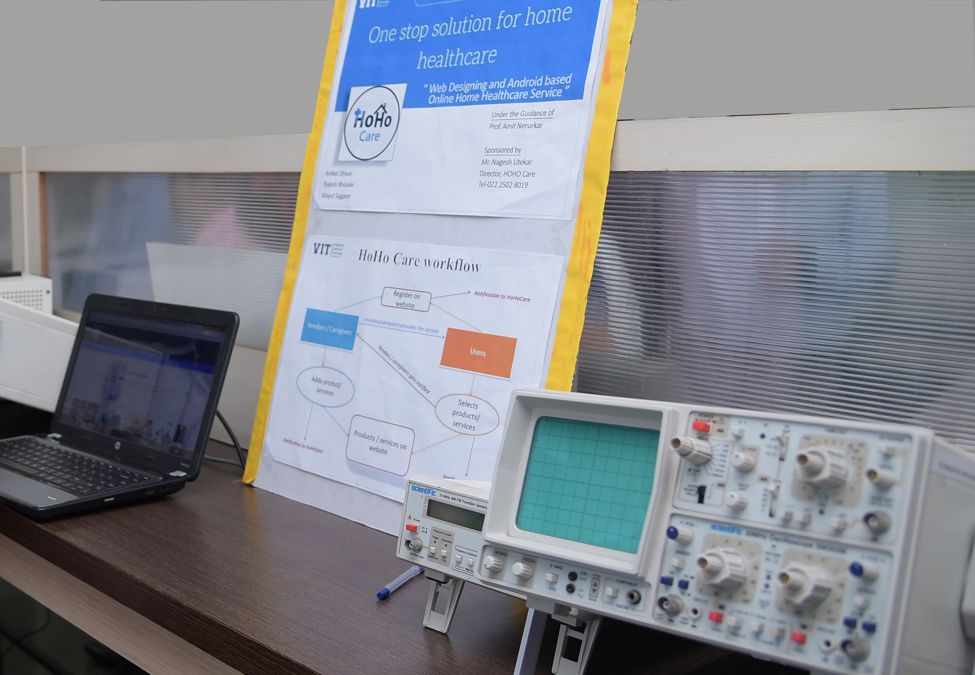
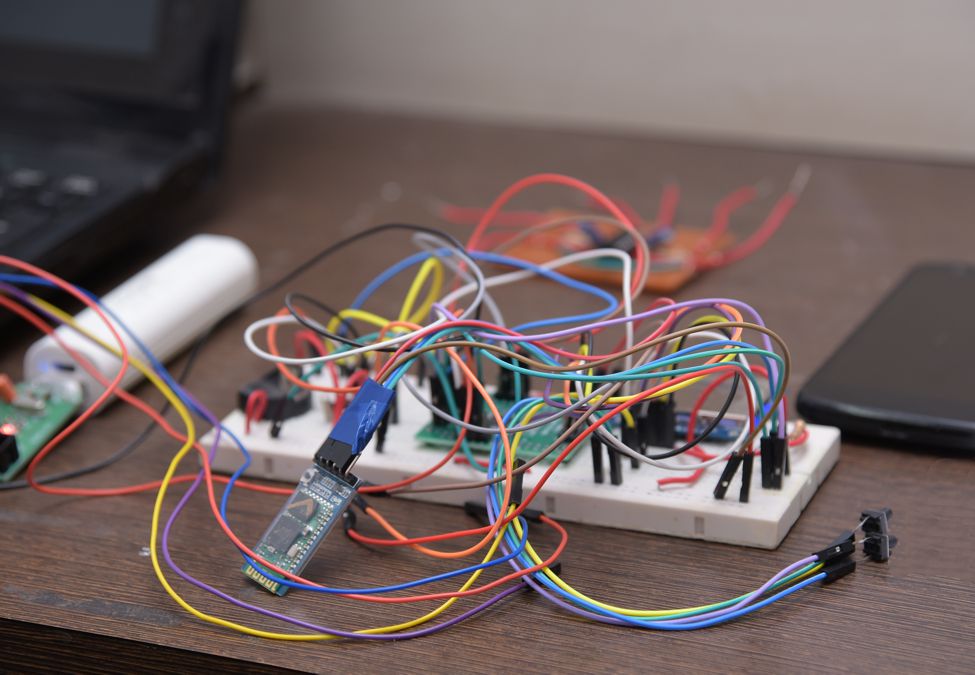

Students from Biomedical Engineering Dept. undergo internships at various organizations including, Companies manufacturing and dealing with Medical Devices, Hospitals, Research Institutes and NGOs. More than 60% of the students from the department undergone Internships in and around Mumbai. Department also offers Inhouse internships to students. College has separate internship cell which helps students to get internships.
Jupiter Hospital, Fortis Hospital, Global Hospital, Nanavati Hospital, Bhatia Hospital, Saifee Hospital, Seven Hills Hospital, Kokilaben Hospital, etc. are some of the few hospitals where students go for internship.
Placements in the Biomedical Engineering Department are focused on companies dealing in Manufacture, Sales and Marketing of Medical Devices and providing Technical Support to the customers. A good number of students are also getting placed in Corporate Hospitals, IT/ITES companies, Education Management firms. MoUs with companies like Smartwayz, Campus Credentials, and Aspiring Minds helps us to make students ready for placements. With close association with Institutes Entrepreneurship cell many students are getting inspired to initiate their own startups. Students have their startups in various fields of biomedical engineering such as equipment used during medical emergencies (Criticare), overall medical diagnosis and healthcare.
List of Students placed-2023 Batch
Department always encourage students to participate in various competitions whether its technical quiz, paper publications, extra-curricular activities, cultural activities or sports activities. Some of our students have moved in to advance stage of Fighting COVID-19 Hackathon, e-yantra , IIT Bombay.
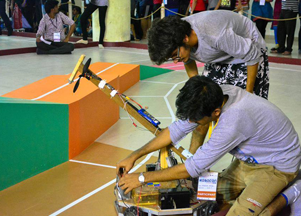
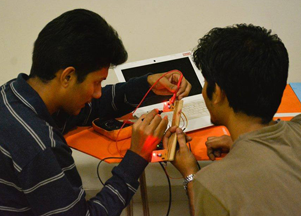
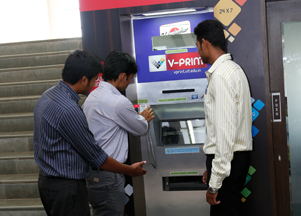
Alumni relationships with the Alma Mater are lifelong relationships nurturing mutual support and growth. In last decade, Biomedical Engineering Department at Vidyalankar Institute of Technology has produced technocrats, leaders, entrepreneurs, social entrepreneurs, managers who collectively have a wealth of knowledge and experience. Our Alumni are working with market leaders in the field of healthcare and many of them had upgraded themselves with master’s degrees (M S/M.Tech /MBA) and PhD from globally reputed institutes.


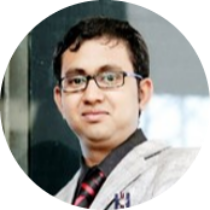
Embedded systems lab is equipped with sophisticated computer systems and used for development of instruments/projects & perform computational activities in areas of Biological Modeling and Simulations, programing of Embedded systems, Simulations for VLSI and Networking Systems in Medicine.
Digital Signal processing lab is loaded with various software’s like HHSim, NgsWIn, MATLAB R-2019a, Packet Tracer, HEXEditor, QuickviewHL7, PSpice, LTSim etc. This lab is used for signal processing studies.
Higher education is a driver of technology and innovations and also a focal point of knowledge. It promotes growth, performance, prosperity and cooperation in every society. Raising skills and enabling its diffusion is the key to creating high-wage employment, enhancing productivity and quality knowledge reserve. It is of paramount importance for development of self, society and humanity as a whole. The roles of higher education in sustainable economic and social development has increased over decades. It prepares one to address major social and global challenges.
1. Dr. Jitendra Toravi nominated as a ‘Judge’ for Final Round of 15th Inter-Collegiate/Institute/Department Avishkar Research Convention: 2021 for Engineering and Technology category and PG, PPG and TH level by University of Mumbai.
2. Mihir Tilak, Amey More, Viraj Bhatkar won first prize in E-Yantra 2020 against Covid-19.
3. Biomedical Engineering students and staff have won many awards for academic excellence and for development work. Some faculties have got National and International recognition for their contribution in the field.
To be a globally recognized centre of excellence in the field of biomedical engineering where learners are nurtured in a scholarly environment to evolve into competent professionals to benefit society.
Evolve a curriculum which emphasizes on strong engineering fundamentals with the flexibility to choose advanced courses of interest and gain exposure to tools and techniques in Biomedical Engineering.
Encourage a teaching-learning process in which highly competent faculty share a symbiotic association with the institutes of repute.
Facilitate creation and dissemination of biomedical engineering knowledge through a digitally-enabled learning environment.
Develop academic and infrastructural facilities with modern equipment and other learning resources and encourage reciprocal sharing with other institutes through networking.
Establish a centre of excellence to enhance academia – biomedical industry partnership and work on collaborative projects.
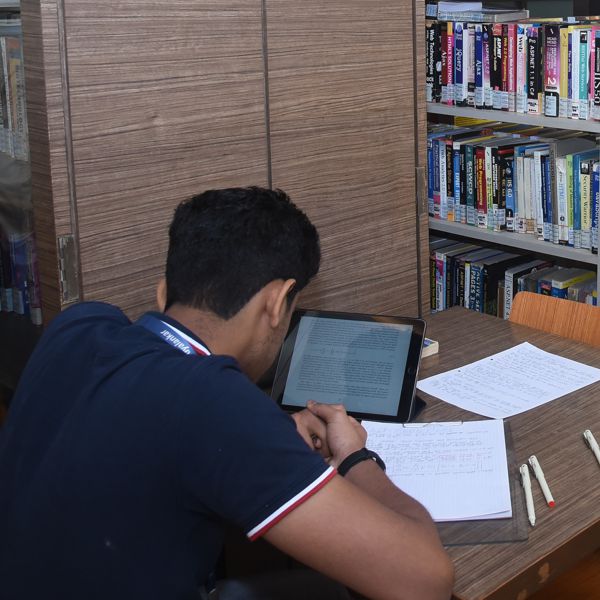
To enable the pursuit of knowledge in the field of Biomedical Engineering and contribute to the profession and employability of the students.
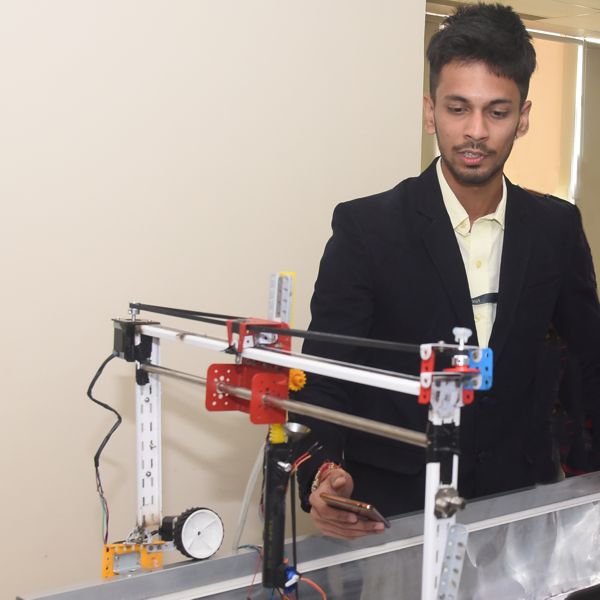
To engage in research, generate the employment through entrepreneurship and work effectively in multidisciplinary environment.
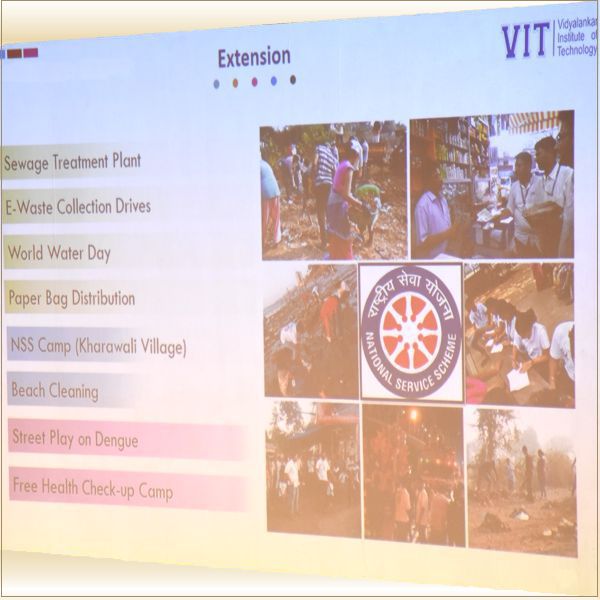
To understand the human, social, ethical and environmental context of their profession and contribute positively to the needs of individuals and society.
Apply advanced science and engineering to solve the problems at the interface of engineering and healthcare.
Demonstrate understanding of the principles and working of the hardware and software aspects of biomedical systems.
Ability to apply knowledge of mathematics, science and engineering for the solution of biomedical engineering problems.
Ability to formulate and analyze complex biomedical engineering problems.
Ability to design a system, component, or process to meet desired needs within realistic constraints such as economic, environmental, social, and public health.
Ability to design and conduct experiments, and to analyze and interpret data.
Ability to use the techniques, skills, and modern engineering tools necessary for biomedical engineering practice.
Ability to include societal, health, safety, legal and cultural issues and the consequent responsibilities relevant to the professional engineering practice.
Ability to consider the impact of engineering solutions on environment and the need for sustainable development.
Ability to incorporate professional ethics, responsibilities and norms of the engineering practice.
Ability to work effectively as an individual, and as a member or leader in multidisciplinary environment.
Ability to communicate effectively on complex engineering activities.
Knowledge and understanding of principles of management and finance in relation to biomedical engineering projects.
Appreciation of technological change and the need for independent life-long learning.